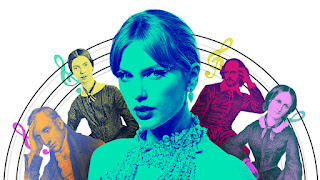Anushka Reddy Week 2: Exploring Model Minority Stereotype on Identity
Model minority perpetuates the stereotype that Asian Americans excel academically which additionally implements high expectations for that group of people. This expectation puts pressure on Asian Americans to perform well in school. This reinforces the idea that academic success is an obligation or the bare minimum rather than a choice or reward. It can cause individuals to lose sight of their true passions and goals. Additionally, what happens when they fail to reach those standards? It can create a sense of identity loss—as they depend their self-worth on academic success—and feelings of shame and humiliation.
The model minority also portrays Asian Americans as conforming, obedient, and does not speak up about issues. When Asian Americans are expected to be quiet and conforming, it silences their voices, opinions, and what they believe in. It can also discourage them from engaging in certain activities such as activism, protests, political discourse, etc. This may result in a sense of cultural erasure and suppression as individuals could feel pressured to adapt to the prevailing culture in order to avoid being perceived as being non-conforming.
In conclusion, given the value of diversity and genuine self-expression, the model minority stereotype is extremely damaging and false and has to be addressed. Nobody should ever feel pressure to fit in by repressing their individuality and conforming. We distinguish ourselves from others by our individuality. People are empowered to lead happier lives when they have the freedom to express who they truly are. This improves society as a whole by developing a culture of embrace, reverence, and love for our differences.
I’m Done Being Your Model Minority
Debunking the Model Minority Myth
Asian Americans Are Still Caught in the Trap of the ‘Model Minority’ Stereotype.



Hi Anushka! Introducing your passage with an article we annotated in class guarantees a reference your audience can comprehend, facilitating effective communication of your point. You efficiently reintroduced the idea of "model minority" and expanded it into a larger, much needed discussion. Your urgent tone paired enticingly with the criticality of your topic. Utilizing words such as "humiliating" and "suppression" create a visual feel and prompt a personal connection between the audience and victims of the "model minority". The frustration I felt about the overall unfairness and injustice about the hurtful stereotypes regarding Asians prove you were able to instigate passion within the audience, which ultimately can lead to action from readers. I believe inspiring the audience, and in this case empowering people to express their individuality is a key goal of any writing that discusses a societal problem.
ReplyDeleteHi Anushka! I think it is really interesting how you began your passage with something that we all read in class, which ensures that your readers will be able to refer to what you are speaking about. The description you gave regarding the "model minority" stereotype further emphasized the point which you were about to make. Your blog indicated a call for action, and described the hateful stereotypes against Asian-Americans. The passionate vocabulary enhanced the ideas about model minority and added more depth to the blog. Additionally, I think that this is an excellent topic to speak about, and these issues need more attention. Speaking out about these harmful stereotypes and discrimination is necessary, and I think your blog does a great job of depicting the urgent need for attention.
ReplyDelete